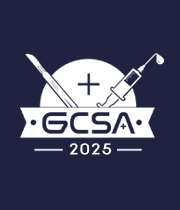Title : Intraoperative conversion from robotic to open pancreatectomy: Impact on postoperative outcomes in a tertiary NHS centre
Abstract:
Background: Robotic pancreatectomy is an emerging minimally invasive technique increasingly adopted inNHSsurgical units. While it offers potential advantages in precision and recovery, intraoperative conversion to open surgery remains a concern. This study investigates the incidence, causes, andpostoperative outcomes of robotic-to-open conversions within a tertiary NHS centre.
Methods: A retrospective cohort study was conducted on all patients undergoing attempted robotic pancreatectomy between January 2022 and December 2024. Patients were divided into two groups: completed robotic procedures and those converted to open surgery intraoperatively. Clinical variables, including patient demographics, operative details, complications (graded by Clavien- Dindo), length of stay, and 30-day readmission rates, were analysed.
Results: Out of 82 robotic pancreatectomies attempted, 16 (19.51%) required conversion to open surgery. The most common indications for conversion were intraoperative bleeding 6(37.5%), severe adhesions 4(25%), and oncological concerns such as vascular involvement 6(37.5%). Convertedcaseshad significantly higher intraoperative blood loss (p<0.05), longer operative times (p<0.05), andthemean length of hospital stay was also slightly longer in the converted group (13 vs. 10 days, p<0.05). No significant difference was observed in psot operation complciations and 30-day mortality.
Conclusion: While robotic pancreatectomy is a safe and viable option in selected NHS patients, conversiontoopen surgery is associated with increased morbidity and resource use. Optimising patient selectionand surgical planning may reduce conversion rates and enhance perioperative outcomes in NHSsettings.


